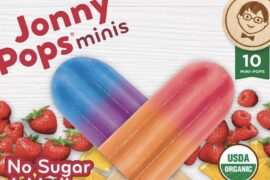Seiyu, one of Japan’s largest retailers, has committed to sourcing products from Best Aquaculture Practices-certified producers, beginning with a packaged shrimp salad sold from freezer cases at 181 stores across the nation. The product carries the four-star BAP label, meaning that it originates from a BAP-certified processing plant, farm, hatchery and feed mill.
Seiyu is the first major retailer in Japan to market BAP seafood in supermarkets. Walmart, Seiyu’s parent company and the world’s largest retailer, is a longtime supporter of the BAP third-party certification program and is committed to responsible sourcing throughout its aquaculture supply chain.

“Walmart is globally promoting sustainable sourcing. Aligning with Walmart, Walmart Japan/Seiyu is also promoting to increase sustainable seafood products as one of the strategies of our seafood department. This is just a first step we are taking in this area, but we hope that this would be a good opportunity for our customers in Japan to learn about sustainable seafood and to purchase our sustainable products first-hand,” said Ning Gu, Seiyu’s chief ethics and compliance officer.
“Sustainable seafood sourcing practices are critical to assure the future supply of seafood, and nowhere is this more important than Japan, a nation with a long, established seafood culture. Over the past two years we have seen an increasing commitment to sourcing responsibly produced seafood within the Japanese marketplace. Our work with Seiyu is just beginning and we look forward to continuing to work with them to add additional product lines,” said Steve Hart, BAP’s vice president in charge of Asia market development.
“Global overfishing threatens ocean ecology, seafood business and local communities. We appreciate that Seiyu, as one of the largest retailers in Japan where a huge seafood market is, has assessed its seafood procurement and decided to promote sustainable eco-labeled seafood. This is extremely meaningful in that respect of achieving SDGs Nos. 12 and 14. We expect that more and more consumers get the chance of responsible choice through Seiyu’s further seafood procurement improvement and communication,” said Wakao Hanaoka, chief executive officer of Seafood Legacy Co. Ltd., a consulting company that specializes in sustainable seafood.
This launch comes in conjunction with the introduction of a new Japanese landing page on the BAP website, which provides information on the BAP program, the Global Aquaculture Alliance’s (GAA) annual GOAL conference, current market endorsers in Japan and more. This is part of BAP’s goal of increasing brand awareness internationally and is the first of many translated landing pages planned to be launched this year.
About BAP
A division of the Global Aquaculture Alliance, Best Aquaculture Practices is an international certification program based on achievable, science-based and continuously improved performance standards for the entire aquaculture production chain – including processing plants, farms, hatcheries and feed mills. BAP standards cover environmental responsibility, social accountability, food safety and animal welfare. The BAP program is based on independent audits that evaluate compliance with the BAP standards developed by GAA.






